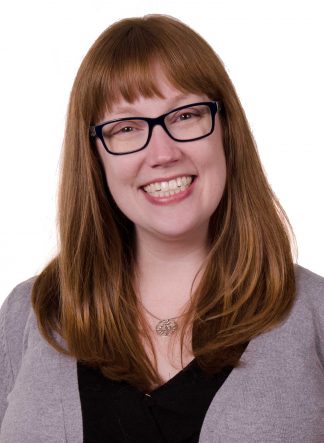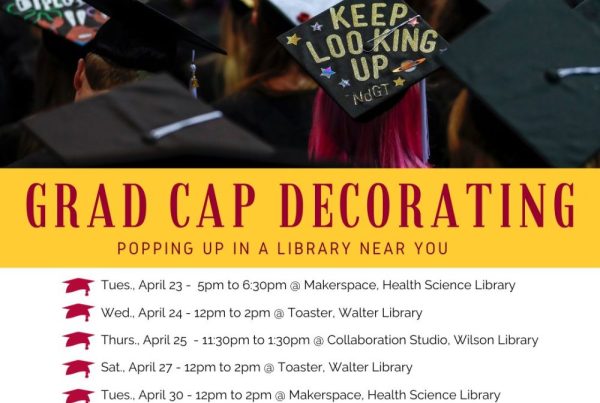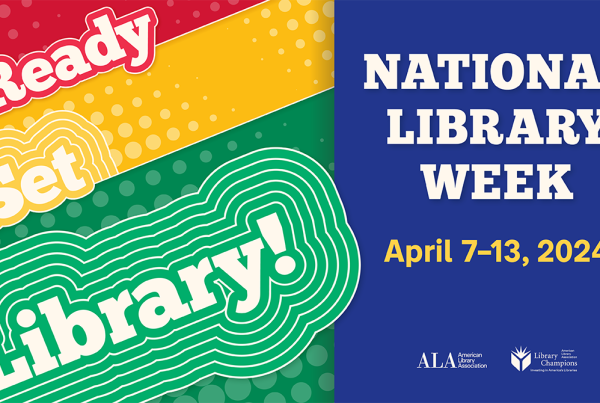By Jon Jeffryes
If you use social media you likely noticed that your feed became increasingly filled with posts and links to fraudulent news stories, hoaxes, and conspiracy theories during the presidential election cycle. In fact, the phenomena was hard to miss as reputable news outlets covered it thoroughly.
When Lindsay Matts-Benson, an instructional designer at the University of Minnesota Libraries, first noticed the trend of false news stories on her personal social media feeds, she decided to do something about it.
Initially, she responded to individuals.
“I was frustrated to see all of this stuff shared when information is so important,” she said.
But she quickly realized that others might have a need for articulating the basics of news source evaluation. Drawing upon her librarian skills with information literacy and her expertise in instructional design, Matts-Benson decided to create a video open to all: “Can you believe what you’ll do after watching this video? Assessing sources of information, an online learning video.
Watch Matts-Benson’s video
‘Authority is constructed and contextual’
Matts-Benson cites the Association of College and Research Libraries information literacy frame, “Authority is constructed and contextual,” as a guiding concept for the video. Starting with the foundational concept of questioning “who are these people that are creating these things and what authority do they have behind it, what expertise do they have behind it,” she adopted a straightforward instructional design model to create the video.
She clearly articulated the learning outcomes, conveyed why the content was important to viewers, and showcased how to apply the information covered. She specifically wanted the video to have an informal style.
“The video is a little fun, a little more whimsical, a little more like if I was actually having a talk with somebody,” she said.
The skills explored in Lindsay’s video are more resonant than ever before. Stanford researchers recently reported the initial findings of their study of middle school, high school, and college students’ ability to evaluate online sources, which concluded: “Overall, young people’s ability to reason about the information on the Internet can be summed up in one word: bleak.”
Integrate our expertise into your course
“I think librarians should rule the world!” Professor Melissa Zimdar said in an interview with Mother Jones. Zimdar, a communications professor at Merrimack recently began compiling a list of “fake, false, regularly misleading and/or otherwise questionable ‘news’ organizations” in a widely shared Google Doc of “False, Misleading, Clickbait-y, and Satirical ‘News’ Sources.”
Although we are not striving for world domination (yet), librarians like Matts-Benson can help instructors, teaching assistants, and students in a variety of ways.
- Consult on assignment creation to integrate meaningful experiences of critical engagement with information sources
- Teach instructional sessions tailored to specific class needs
- Create customized learning objects that can be added to course websites and linked on syllabi for point-of-need reference
Matts-Benson and the instructional design team often partner with subject librarians in supporting instruction through the creation of subject-specific learning tools and creating dynamic in-class learning experiences. Anyone can request a consultation with their subject librarian. If you don’t know who your subject librarian is, visit the Libraries website.
Matts-Benson hopes to turn this video into the first of a series. She’s lined up other library experts to collaborate to build tools on critically engaging with government information, the basics of personal information privacy, and applying information literacy to celebrity science. She’s also planning a follow-up to her video, focusing specifically on evaluating conspiracy theories, clickbait, propaganda, and disinformation.






The library is still the strongest source for information Many sources of news written on the internet are unclear Hard to believe is the truth without judging. We were lost if there were not nice people who helped us in the library. Thank you very much for the article